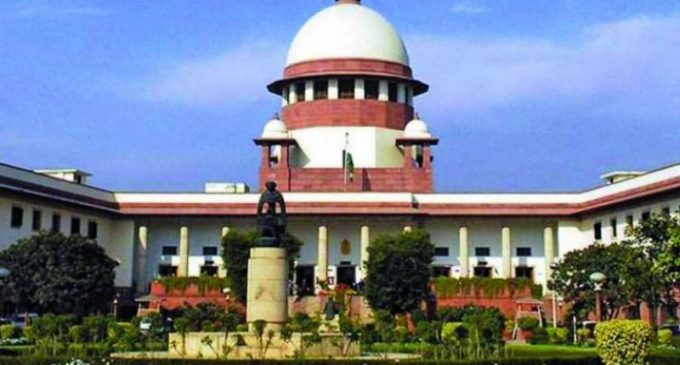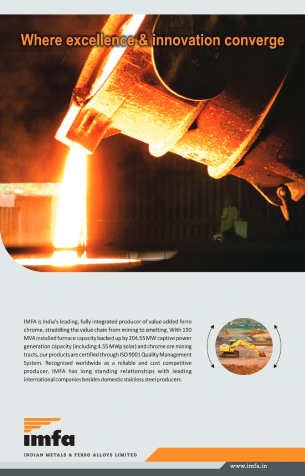SC upholds right of States to impose taxes on mines, mineral-bearing lands

NEW DELHI,JULY 25 : In a setback to the Centre, the Supreme Court on Thursday held that royalty payable on minerals is not a tax and states have the legislative competence to impose taxes on mines and minerals-bearing lands.
The verdict will boost the mineral-rich states like Jharkhand and Odisha as they urged the top court to decide on recovery of taxes worth thousands of crores rupees levied by the Centre on mines and minerals, till now.
The states urged the top court to make the verdict operational with retrospective effect to ensure refund of the taxes from the Centre.
However, Solicitor General Tushar Mehta, appearing for the Centre, vehemently opposed the submissions and sought that the verdict be made effective prospectively.
The majority judgment – 8:1 – authored by the Chief Justice-led bench D Y Chandrachud, said that the payments made to the government cannot be deemed to be a tax merely because a statute provides for its recovery in arrears.
“Royalty is not within the nature of tax as it is a contractual consideration paid by the lessee for the mining lease. Both royalty and dead rent do not fulfil the characteristics of tax. The judgement in India Cements (1989 verdict) holding royalty to be a tax is overruled,” the CJI said.
The other judges, who also were unanimous and agreed to the CJI’s views were Justices Hrishikesh Roy, Abhay S Oka, J B Pardiwala, Manoj Misra, Ujjal Bhuyan, Satish Chandra C Sharma and A G Masih. The only judge who was dissenting was Justice B V Nagarathna, who had a different view on the issue.
“I hold royalty is in nature of the tax. States have no legislative competence to impose any tax or fee on mineral rights. Entry 49 is not related to mineral-bearing lands. I hold India Cements decision was correctly decided,” Justice Nagarathna said.
Royalties are payments that the user party makes to the owner of an intellectual property or real property asset.
Under Entry 49, states have the power to levy taxes on lands and buildings, while Entry 50 allows states to impose taxes on mineral rights subject to any limitations imposed by Parliament by law relating to mineral development.
The CJI said the Mines and Minerals (Development and Regulation) Act (MMDRA), 1957 does not limit the states from imposing taxes on mines and mineral development.
“The legislative power to tax mineral rights lies with the State legislature and the Parliament does not have the legislative competence to tax mineral rights,” the top court said in its ruling.
The apex court also made it clear that the Parliament could not use its residuary power regarding this subject matter. So the state legislature has the legislative competence under Article 246 read with Entry 49 of List 2 to tax mineral-bearing lands.
After the pronouncement of the verdict, the Union of India (UOI) and many petitioners requested the SC to make a prospective verdict that held states power to levy tax on mines and minerals.
To this, the CJI said, the court would clarify on July 29, Wednesday to decide whether its judgment will operate retrospectively, which would mean huge arrears of tax accruing to the states, or prospectively. States want today’s ruling to operate retrospectively, while the Centre wants it prospectively.
The Supreme Court had on March 14 reserved its verdict on the controversial issue of whether the royalty payable on minerals is a tax under the Mines and Minerals (Development and Regulation) Act, 1957, and if only the Centre is vested with the power to levy such exaction or states also have the authority to impose levies on mineral bearing land in their territory.
The nine-judge bench of the top court, headed by CJI Chandrachud heard the matter on eight days while dealing with a batch of 86 appeals filed by different state governments, mining companies and public sector undertakings.
During the hearing, the top court had said the Constitution vests the power to impose tax on mineral rights not in Parliament alone but also the states and underlined that such authority should not be diluted.
A 7-judge bench had decided in favour of India Cement in 1989. It had ruled the Centre was the primary authority under the MMDRA. It held that states can collect royalties under the MMDRA but cannot impose further taxes on mining and mineral development.
“Royalty is a tax, and as such a cess on royalty being a royalty tax, is beyond the competence of the State Legislature,” the top court had held.
However, in 2004, a five-judge constitution bench, while hearing another dispute over the imposition of cess on land and mining activities between the state of West Bengal and Kesoram Industries Ltd held there was a typographical error in the 1989 verdict and that royalty was not a tax.
It said the phrase “royalty is a tax” should instead be read as “cess on royalty is a tax” and that the 1989 judgement held that royalty is not a tax.
Over 80 more petitions were filed in the Supreme Court over the years, and since the India Cements matter was dealt with by a seven-judge bench, the matter was referred to a nine-judge bench to decide whether royalty is a type of tax or there was an error in the India Cements case judgement.
While States’ defended their right to impose tax on land and mineral activity during the eight-day long hearing, the Centre, mining companies and public sector undertakings had contested the contentions, saying only Parliament can impose taxes on minerals by virtue of the MMDRA and states are completely denuded of the power to levy any taxes on mines and minerals.
-PTI






